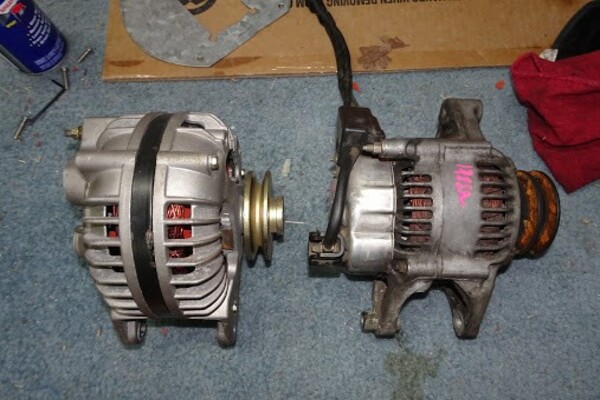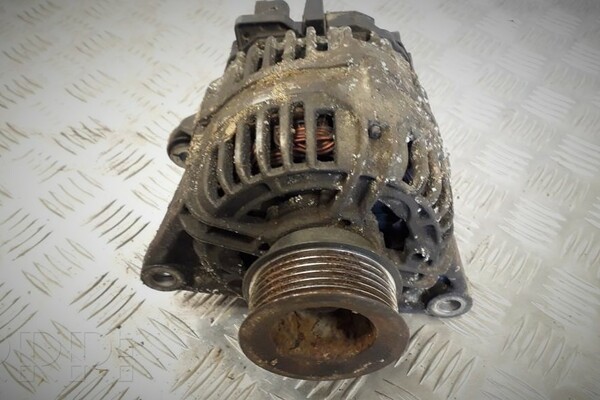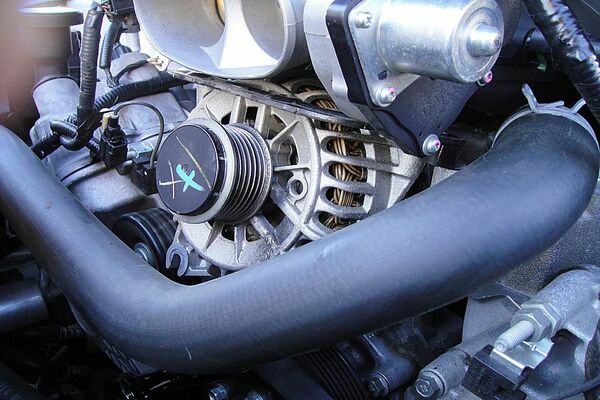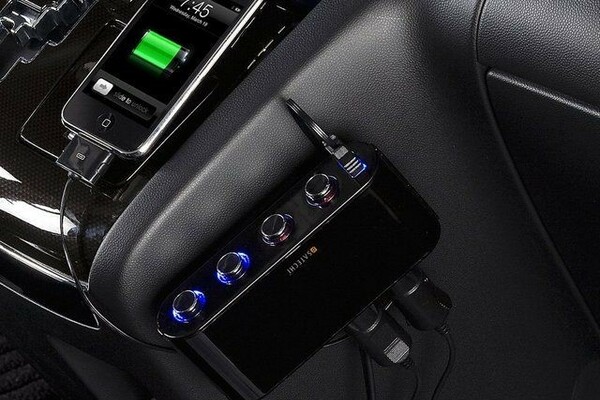How to choose an alternator for your car
What exactly does an alternator do? Why would this need to be upgraded? Are there any threats to doing so?
Two usual reasons why people replace parts in their vehicles is if it’s damaged or they’re not happy with its quality. For example, if you’re not happy with your speakers, you can always replace it.
However, this can also require upgrades from other parts of the vehicle, like the alternator. But what exactly does an alternator do? Why would this need to be upgraded? Are there any threats to doing so?
Find out everything you need to know about it right in this article from Philcarnews.com:
The need for an alternator upgrade
If you ever decide to upgrade a part like your sound system, you may want to do the same to the alternator. The more beefed up your audio system is, the more power it will most likely require.
Now, your alternator may have this handled. But then again, it can also have a hard time putting up with such an upgrade.
The question, however, doesn't usually concern a stronger alternator. Rather, it's about how bigger the alternator needs to be.

If you ever decide to upgrade a part like your sound system, you may want to do the same to the alternator
How can we say that an alternator is already too much?
First off, we'd like to relieve you of a common fear when it comes to replacing car parts. Fortunately, alternators are one of those parts you can safely upgrade.
This means most vehicle alternators can be upgraded without you having to worry about damaging the other electronics.
To give you a close example of reality, let's get a new in-car stereo. So, let's take the power requirements of that in addition to the preexisting electricity requirements of your vehicle. Let's say that the total power requirement is just a little over 200A. So for a close estimate, you settled for a 300A alternator.

Alternators are one of those parts you can safely upgrade
>>> Related: 4 Car Parts to Check After Flood
Even if you do manage to find an alternator with a 300A capacity, you will still need to find a way to fit it in the engine compartment. If you do, then great.
But if you're worried that 300A may be too much for your vehicle. There's nothing to worry about. That extra boost of power would only be available when your equipment needs it. If not, that extra shot of amperage will be safely tucked away.
The only thing you'll really have to worry about is the cost for the alternator and its installation. But of course, this is all just for example. Now, onto the reality of the process.
If you are to ever come across the situation featured in this example, there's still a problem. If your new sound system really needs that amount of amperage, you'll have to do some tweaking.
This is all before you get that 300A alternator. But there's no need to worry. The tweaking only concerns the prevention of wire burns and cables. There's no need to be concerned about burning fragile equipment anywhere in your vehicle.
Supply and demand of a high amp alternator
An alternator's amperage rating is basically the exact amount of current your electronics are able to pull. Put simply, let's say all the electronics in your vehicle joined together only need 80A. But your alternator is a 300A unit. That means that your monstrous alternator only supplies 60A.
In almost any electrical equipment, the component will only pull the power it needs. This is regardless if you have a 200A or 300A alternator. So, if your beasty amp requires 150A to operate, you don't need to worry. The same 150A won't be flowing into your fancy interior LED lights, so you won't have to worry about blowing them out.

An alternator's amperage rating is basically the exact amount of current your electronics are able to pull
As you may already know, wattage if divided by volts is amperage. This function systematically works on a supply and demand principle. In simpler terms, your alternator will only supply as much power as demanded by the electrical component.
In fact, the alternator only generates the total required amperage of all the running equipment at a time. Then, each of the running equipment just grabs their fair share of the amperage that they need.
If you want to know how much amperage your component needs, follow this trick. Simply divide the wattage indicated on the electronic equipment by the system's voltage. So, let's take 50-watt lamps as an example.
The solution would go as 50/13.5V. The result would be around 4A. That is exactly the amount of power that your lights would need. That will also be the amperage that your lamp will require from the alternator - no more, no less.
>>> Related: 5 car parts that are particularly damaged by potholes
Do you even need a high amperage alternator?
Every single electrical equipment in your vehicle will need to pull power from the alternator. Most stock alternators can handle almost anything you decide to add in your vehicle.
But if the time comes that you do add something that’s super amp-consuming. Then, that might be the time for you to decide to upgrade your amp.
But if all you have is your stock lights and electronics, you won’t have to worry about this too much. Your stock alternator should be able to satisfy all your amperage needs.

Every single electrical equipment in your vehicle will need to pull power from the alternator
But if you do decide to put in some power-hungry electronics, your alternator might not be able to take it. Note that most manufacturers build their units because they think it’s best the way it is. That means the alternator may be best suited for that lower amp stock stereo.
But if you still pursue that beasty amplifier and refuse to upgrade your alternator, you may be left with some problems. You will usually notice these types of signs when your alternator can’t take the load of your electronic equipment:
- Dimming headlights
- Flickering dash lights
- Engine dies

If you do decide to put in some power-hungry electronics, your alternator might not be able to take it
There are also circumstances when overloading an already faulty alternator can lead to failure. If you ever decide the alternator in this scenario with one with the same capacity, you may as well expect the same outcome.
>>> Follow Philcarnews for more handful driving tips
RECENT ARTICLES









